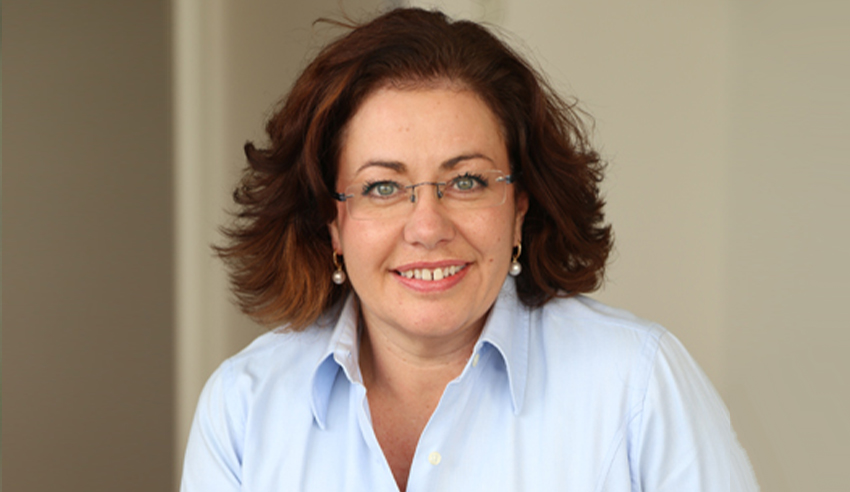There are no black and white rules for adapting business development strategies during a global pandemic, save for one: relationships are everything in law.

There are four pillars of growing a legal practice, according to Sue-Ella Prodonovich: strategy, marketing, business development and client engagement. The global coronavirus pandemic has impacted upon all of those pillars, and on the question of the third pillar – business development – COVID-19 has “up-ended everything”, she says.
Speaking recently on The Lawyers Weekly Show, Ms Prodonovich – who is the principal of Prodonovich Advisory – said that much has changed in such a short period of time when it comes to BD considerations for legal businesses.
“In the olden days (let’s call that six months ago), firms and lawyers might’ve had a sales funnel or a pipeline where we could work on converting clients on winning work and on keeping good clients, and variables that we worked with were, by and large, fairly stable. We were competing or firms who are competing with each other or with in-house options or with online options,” she recounted.
“But, now, given that law is a buyer’s market, our buyers have changed significantly and their appetites have changed, and the stresses on them have changed. So, BD has taken a back seat. In the older days, it might’ve been more about selling, today, it’s about looking after clients and, in this environment, it’s about providing clarity and calmness and providing options to clients.”
“I think that, as an umbrella, that’s how things have changed. Obviously, the face-to-face communications, the networking, the seminars, that interaction, that very personal pace has gone. And so, a big change that we’re seeing is how we can provide these ideas and keep relationships going when you can’t have that face-to-face meeting,” she said.
In terms of how best firms can communicate their BD plans, Ms Prodonovich said that many people were touching base and just picking up the phone, but that “there has been a tsunami of information on calls and some clients and some contacts are getting to the point where now they cannot take in this flood of information”.
“So, one of the things that I’ve observed is the role of asynchronous communication: going back to send emails where it’s sensible that we don’t need to put everyone on the spot for a Zoom meeting or a call and be put on the spot with information, mix it up in the kit of material that you have,” she suggested.
“Sometimes a call is good, sometimes an email so that people can digest when they’re really thinking or reflecting on what can happen. So, it might be later in the evening that they want to read through things and you should have something handy there. I think there’s also room for just even using a post just to cut through.”
Furthermore, more and more people are using text, Messenger or WhatsApp, Ms Prodonovich continued, so as to mix up the communication strategy.
“Now, what we’re doing is a business development to a market of one, and what I mean by that is rather than having a blanket role of everyone picking up the phone, look at each contact event, say right, what’s going on in their world, what is their sentiment and here’s the information I’ve got that will help them and/or would be of interest to them and what is a way that I can share this and just keep your kit flexible to suit the client.”
BD during the pandemic “can be as creative or innovative as you want”, but if it’s not cutting through or hitting at the right time, then legal businesses will be wasting their own time, Ms Prodonovich warned.
“I think there are some useful empathic tools that you can employ. One of them is even just looking at your client and thinking about the four things that they’re doing, what are they seeing, what are they saying, what are they feeling and what are they doing? And if you’ve got a blind spot there that might give you some direction in what else you could do or follow up on,” she said.
In addition, she suggested looking at one’s clients or market’s entire network for broader opportunities.
“I was speaking with a lawyer recently about their markets and rather than going head-to-head and approaching clients, this might be a moment where we speak to the other providers, the other influences in our market. It could be the experts, it could be your suppliers, it could be other advisers to your clients, whether it’s their accountants, their banks, even the barristers who might’ve briefed before in this area, but cast a wider net than just that one-to-one going to your client direct,” she mused.
Ultimately, there aren’t black and white rules about how to manage BD in this time, but one rule businesses must remember is that law “is a relationship business”.
“The things [most needed] with relationships are empathy, flexibility and authenticity. This pandemic is going to be a bit of a marathon. So, my black and white rule – if I was going to make one – is set yourself up so you can have conversations on an ongoing basis.”
To listen to the full conversation with Sue-Ella Prodonovich, click below:

Jerome Doraisamy is the managing editor of professional services (including Lawyers Weekly, HR Leader, Accountants Daily, and Accounting Times). He is also the author of The Wellness Doctrines book series, an admitted solicitor in New South Wales, and a board director of the Minds Count Foundation.
You can email Jerome at: